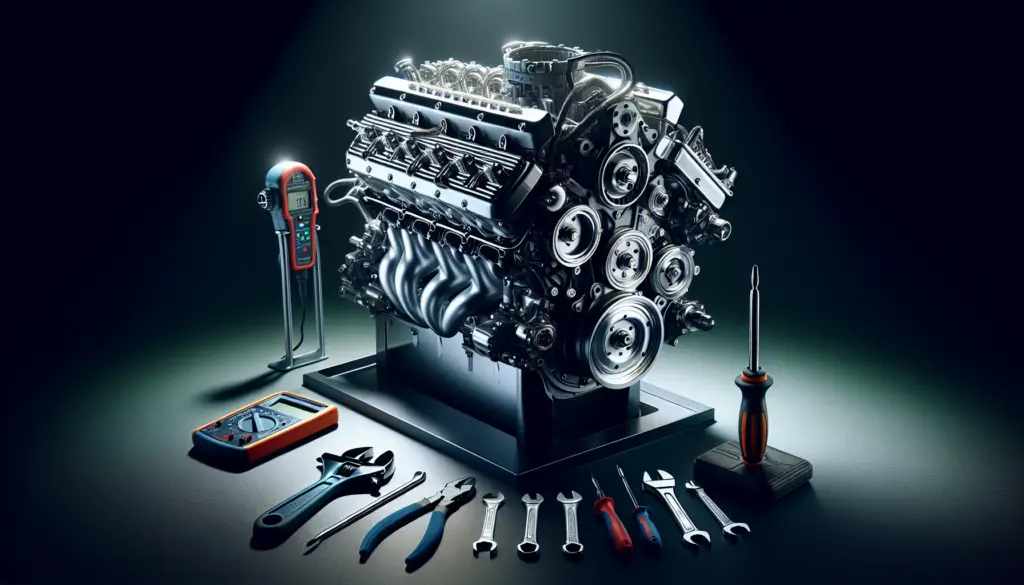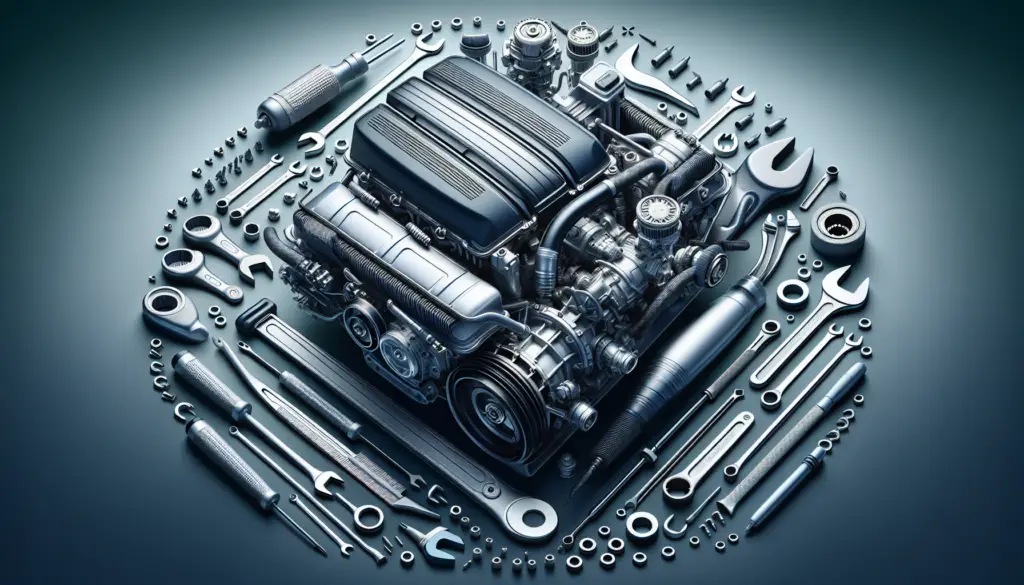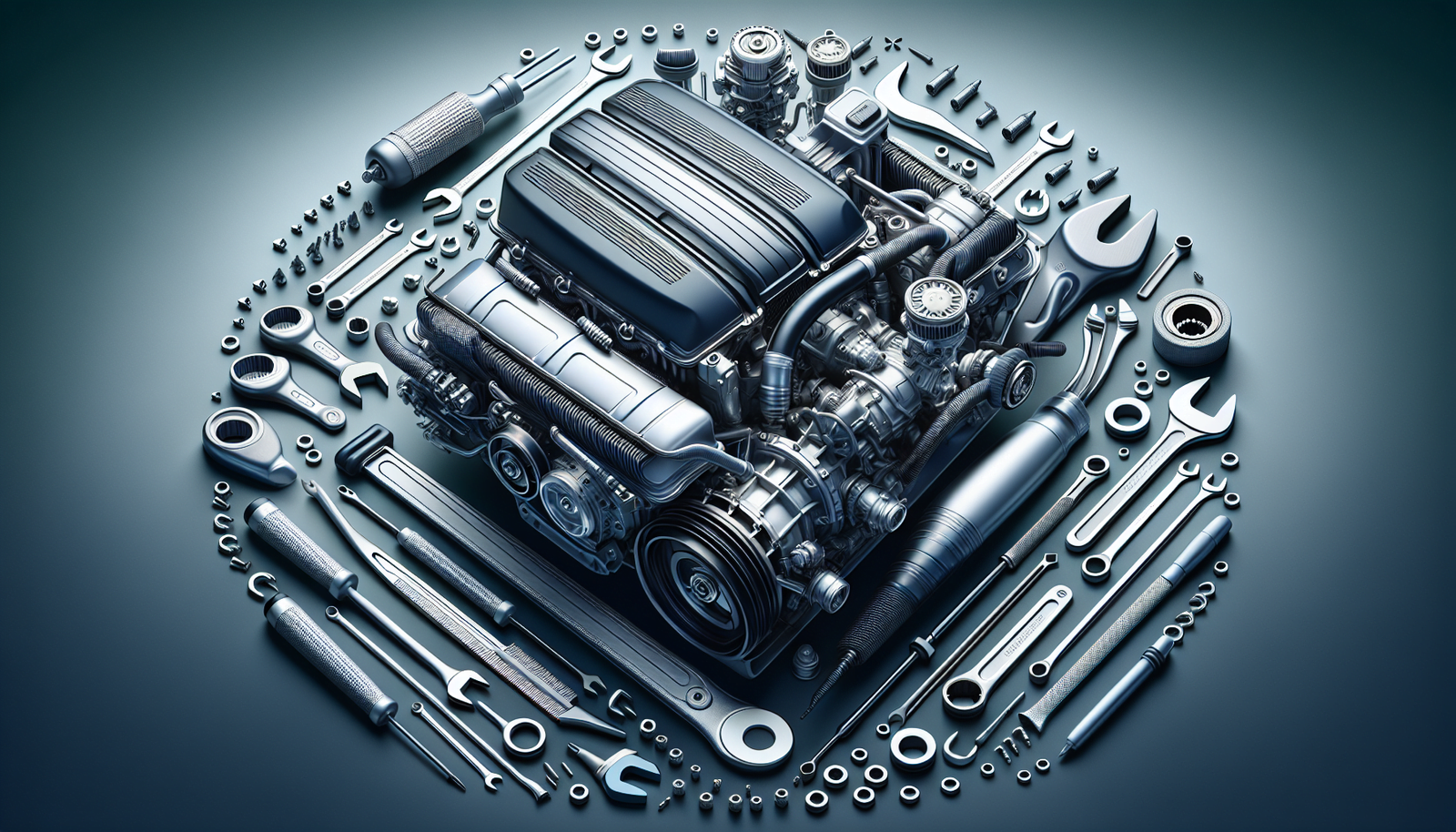“Look, you’ve likely heard numerous myths and misconceptions about boat engine maintenance that can lead you astray. ‘The Common Myths About Boat Engine Maintenance Debunked’ is all about debunking those myths, providing clarity, and guiding you towards valid, tried, and true boat engine tricks and tips. Relinquishing these false beliefs can save you both time and money, while imparting critical knowledge about the proper care for your boat’s engine. This enlightening piece aims to expose the truth behind conventional wisdom, debunk loftily stated myths, and provide you with valid, effective boat engine maintenance practices. It’s high time you let go of these prevalent boat engine maintenance myths.”
Myth #1: Annual Oil Changes are Unnecessary
You might’ve heard people say that changing oil annually for your boat engine is an overkill. This, my friend, can’t be further from the truth.
Understanding The Importance of Oil Changes
Think of oil as blood in our bodies. Just as fresh blood assists organs in functioning optimally, clean and fresh oil helps maintain smooth operation of your boat engine. It lubricates the engine parts to reduce friction and consequent wear and tear, and helps dissipate heat. It also aids in preventing corrosion and sludge formation.
Understanding the Right Frequency of Oil Changes for Boat Engines
While it’s true that you don’t need to change the oil as frequently as in a car, that doesn’t mean you can ignore it indefinitely. The frequency of oil changes depends on the type of boat engine and its usage. For many engines, especially those heavily used, an oil change every 50-100 operating hours or at least once a year (whichever comes first) is advised. When in doubt, consult your engine’s owner manual for manufacturer recommendations.
Consequences of Infrequent Oil Changes
Not changing the oil regularly means all the contaminants and sludge floating around could clog the oil filter and serve as an abrasive further eroding engine parts. Over time, this could lead to serious damage and expensive repairs. Simply put, regular oil changes are a small investment for a great return: a longer engine life.
Myth #2: Salt Water Flush is Not Required
You might think you don’t need to flush your engine if you use it in freshwater. But, the truth is, all watercrafts, especially those used in salt water, require regular flushing.
The Role of Salt Water in Engine Damage
Salt water is corrosive; it accelerates rust and corrosion in the engine. Once the salt dries up, it forms crystals that further damage components and restrict water flow, resulting in overheating.
The Benefits of Regular Salt Water Flushes
Flushing your engine with freshwater after each outing, especially if used in salt water, will wash away the corrosive salt and mineral deposits and prolong the lifespan of your boat engine.
Procedures and Precautions for a Proper Salt Water Flush
Each engine has a specific procedure and equipment for the flushing process, explained well in the owner’s manual. Mooring the boat at the dock, using earmuffs on the water inlets or using a built-in flushing unit, are common ways to flush your engine. Upkeep this habit for the overall health of your engine.

Myth #3: Any Kind of Antifreeze Will Work
It’s common to think that all antifreeze is the same, but this is definitely a myth.
Importance of Using Marine-Specific Antifreeze
Marine-specific antifreeze, meant for boats, is significantly different from your usual car antifreeze. Marine antifreeze is formulated to protect against freezing and corrosion in the harsh marine environment and is non-toxic, which is better for the environment too.
Benefits of Using the Correct Type of Antifreeze
Using a marine-specific antifreeze will provide optimal performance and prevent costly damages to your engine that might arise from freezing. It also protects the water system in your boat, which is crucial for boating safety.
Potential Risks of Using the Wrong Antifreeze
Using the wrong, i.e., non-marine antifreeze, potentially exposes your engine and its components to freezing and bursts, leading to premature failure and decreasing the overall lifespan of your engine.
Myth #4: Always Keep Your Fuel Tank Full
While it might seem counterintuitive, keeping your fuel tank constantly full is not always the best practice, especially if your boat is going into long-term storage.
Factors Impacting Fuel Requirements
The amount of fuel you need depends on a variety of factors, such as the type of fuel your boat uses, the duration of storage, and whether fuel stabilizers are used.
Understanding Fuel Degradation
Over time, fuel breaks down and forms sediment and sludge. Changes in temperature can cause condensation building up in the tank, which may lead to fuel degradation and engine damage, making it less reliable and efficient.
How to Manage Fuel in Storage Periods
When planning to store your boat for long periods, especially over winter, it’s wise to add a fuel stabilizer to the tank, then fill the tank almost full to leave room for expansion and contraction due to temperature changes. Run the engine for a few minutes to allow the stabilizer to circulate.

Myth #5: You Can Use Any Oil for Your Boat Engine
Oil isn’t just oil, and swapping one type for another could have significant implications for your boat’s engine.
The Role of Engine Oil in Boat Maintenance
Specific oils are engineered to provide optimal performance and protection for boat engines operating under harsh marine conditions.
Understanding the Types of Engine Oil
For instance, marine oils usually contain more anti-wear and anti-corrosion additives than conventional motor oils. They also come in different viscosities to suit different engine types and operating temperatures.
Choosing the Correct Oil for Your Specific Boat Engine
Your boat’s owner manual will provide the best guidance on the ideal type of oil for your engine. Using the specified type of oil ensures that your engine runs smoothly and prolongs its lifespan. Deviating from the prescribed oil type could result in lower efficiency and more engine damage.
Myth #6: Boat Engines Don’t Need Regular Maintenance
Some people believe that boat engines need maintenance only when a problem arises. This misbelief can lead to expensive repairs in the long run.
Understanding Routine Maintenance for Boat Engines
Just like any piece of machinery, boat engines need to be regularly inspected, cleaned, and maintained to ensure optimum performance and longevity.
Common Telltale Signs of Necessary Maintenance
Look out for symptoms that signal that maintenance is due. These could be erratic performance, loss of power, a slump in fuel efficiency, smoke, odd noises, or fluid leaks.
Impact of Negligent Maintenance on Boat Lifespan and Performance
Ignoring these signs of wear and tear not only affects the engines’ performance but also shortens its lifespan dramatically. Regular maintenance can help prevent expensive engine damage and keep your boat running seamlessly for many enjoyable years.
Myth #7: You Don’t Need to Change the Spark Plugs until They Fail
Just like your boat’s engine oil, your spark plugs shouldn’t be left until failure to be replaced.
Importance of Timely Spark Plug Changes
Spark plugs are vital for your boat’s engine to run smoothly. They ignite the fuel in the engine cylinders, transferring energy to your boat. Over time, they can wear out or get dirty, impacting their performance.
Symptoms of Failing Spark Plugs
If your boat’s engine has trouble starting, is idling roughly, or has decreased performance or fuel economy, it might be a sign that your spark plugs need changing.
How Regularly Changing Spark Plugs Enhance Boat Engine Performance
Replacing spark plugs regularly is a cost-effective way to maintain your boat’s engine performance while preventing possible engine damage.
Myth #8: It’s Okay to Neglect the Propeller
The propeller might seem like a simple part of your boat, but neglecting it can cause significant problems.
Understanding the Key Role of the Propeller
The propeller transfers the engine’s power into forward motion. A propeller in bad condition decreases your boat’s performance, causes vibration, and puts unnecessary strain on the engine.
Potential Damages from Ignoring Propeller Upkeep
Ignoring routine propeller checks can lead to decreased performance, damage to other parts of the boat, such as the drive system, and could potentially lead to engine failure.
Recommended Propeller Maintenance Practices
Check regularly for nicks, dents, or any other kind of damage. Even small damages can cause significant performance loss and fuel inefficiency. Regular maintenance and cleaning will increase the life span of not just your propeller, but also your boat’s engine.
Myth #9: Boat Batteries Don’t Need Maintenance
Battery maintenance is often overlooked, which can lead to premature battery failure.
Understanding the Pivotal Role of Boat Batteries
Boat batteries are an integral part of your boating experience, providing electrical power to your engine and onboard accessories.
Common Issues Arising from Improper Battery Maintenance
Without regular checks and maintenance, a battery can lose its charge, become corroded, or fail – leaving you stuck out on the water.
Steps to Maintain Your Boat Battery
Regularly checking battery connections for tightness and corrosion, and ensuring the battery is fully charged will make sure you have a reliable power source for your engine each time you use your boat.
Myth #10: ‘Winterizing’ the Boat Engine is Unnecessary
Last but not least, one of the most widespread misconceptions is that ‘winterizing’ your boat engine isn’t necessary.
Understanding the Process of ‘Winterizing’
‘Winterizing’ is the process of preparing your boat for the cold off-season. This involves draining the engine, fuel systems, and water tanks, adding antifreeze, and taking other measures to protect against damage from freezing temperatures.
‘Winterizing’ Benefits for Boat Engine Longevity
‘Winterizing’ helps prevent freezing and corrosion, prolongs the lifespan of your boat’s engine and other systems, and ensures your boat will be ready for use when the boating season begins again.
Risks of Not ‘Winterizing’ the Boat Engine
Not ‘winterizing’ your boat can lead to significant damage, including cracked blocks, corrosion, or engine failure.
Remember, regular maintenance is as essential to your boat as it is to your car or any other machine. Each of these myths debunked today emphasizes the importance of regular checks, timely servicing and right practices for your boat engine. This not only ensures seamless operation but also adds years to your engine life and ultimately, your boating enjoyment. Now that you know better, go ahead and be a responsible boat owner!


[…] Be ready to unlearn some widely held beliefs and habits as you venture into the nuanced world of boat engine maintenance. This knowledge not only saves you from costly repairs but also ensures that your trusty vessel […]
[…] recommend changing your boat engine oil as per the manufacturer’s guidelines, usually after every 50-100 hours of operation or at […]
Bridger Colón
jaeona race
Anne Vaughn
Maxine Watson
Luisa Tran
Jessica Boyer
Jonathan Pittman
quantesha mcauly
davant vasiliades
magafur castagnasso